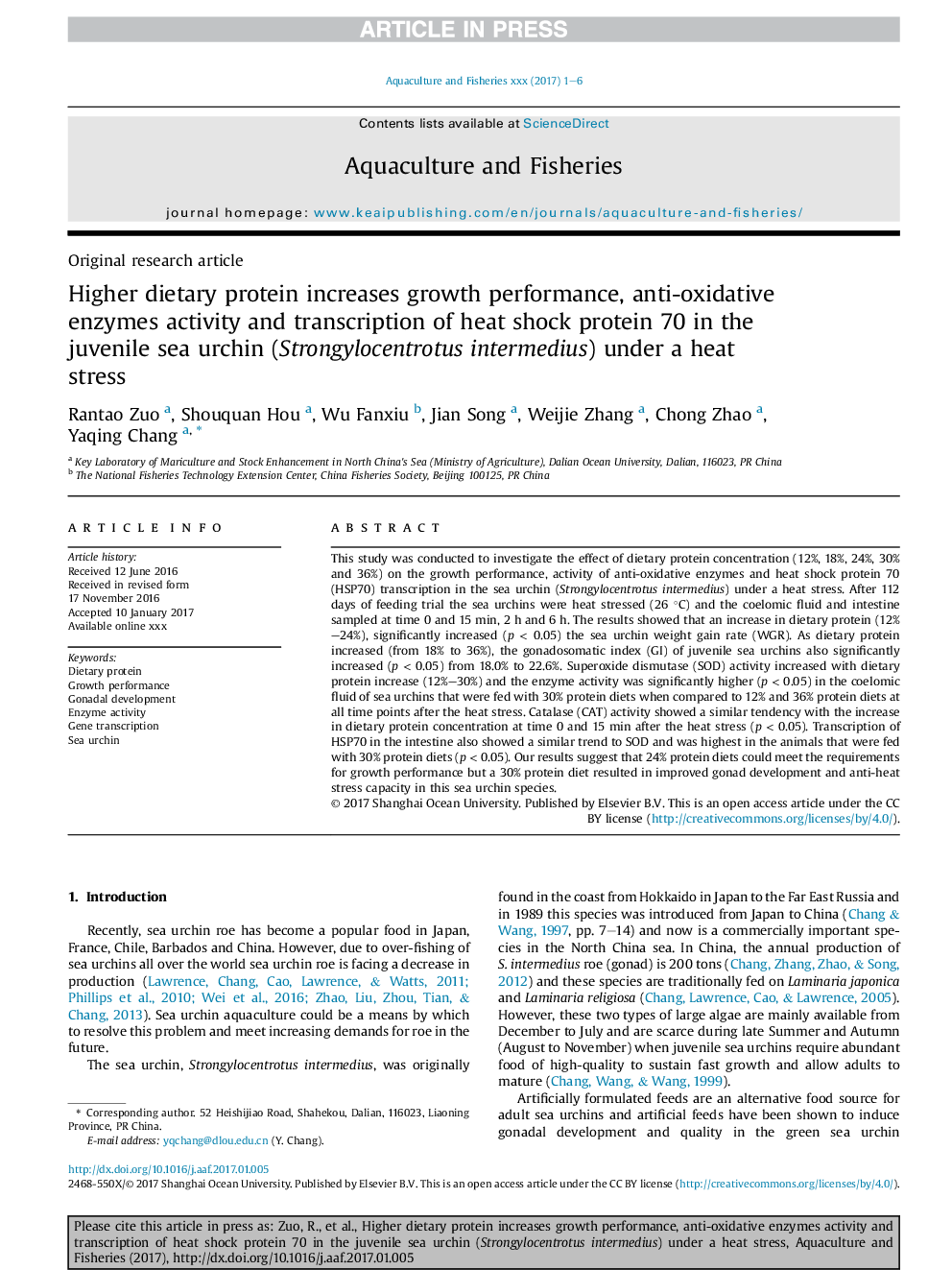| Article ID | Journal | Published Year | Pages | File Type |
|---|---|---|---|---|
| 8920026 | Aquaculture and Fisheries | 2017 | 6 Pages |
Abstract
This study was conducted to investigate the effect of dietary protein concentration (12%, 18%, 24%, 30% and 36%) on the growth performance, activity of anti-oxidative enzymes and heat shock protein 70 (HSP70) transcription in the sea urchin (Strongylocentrotus intermedius) under a heat stress. After 112 days of feeding trial the sea urchins were heat stressed (26 °C) and the coelomic fluid and intestine sampled at time 0 and 15 min, 2 h and 6 h. The results showed that an increase in dietary protein (12%-24%), significantly increased (p < 0.05) the sea urchin weight gain rate (WGR). As dietary protein increased (from 18% to 36%), the gonadosomatic index (GI) of juvenile sea urchins also significantly increased (p < 0.05) from 18.0% to 22.6%. Superoxide dismutase (SOD) activity increased with dietary protein increase (12%-30%) and the enzyme activity was significantly higher (p < 0.05) in the coelomic fluid of sea urchins that were fed with 30% protein diets when compared to 12% and 36% protein diets at all time points after the heat stress. Catalase (CAT) activity showed a similar tendency with the increase in dietary protein concentration at time 0 and 15 min after the heat stress (p < 0.05). Transcription of HSP70 in the intestine also showed a similar trend to SOD and was highest in the animals that were fed with 30% protein diets (p < 0.05). Our results suggest that 24% protein diets could meet the requirements for growth performance but a 30% protein diet resulted in improved gonad development and anti-heat stress capacity in this sea urchin species.
Keywords
Related Topics
Life Sciences
Agricultural and Biological Sciences
Aquatic Science
Authors
Rantao Zuo, Shouquan Hou, Fanxiu Wu, Jian Song, Weijie Zhang, Chong Zhao, Yaqing Chang,
